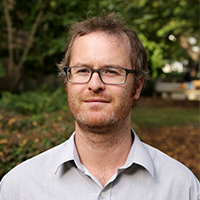
Below I have posted the table of contents and the introduction to my new book of dialogues, Deface the Currency: The Lost Dialogues of Diogenes. The book is available here.
ACT I DIOGENES’ LANTERN
ACT II THE EMPEROR AND THE BEGGAR
ACT III PLATO AND THE REPUBLIC OF DIOGENES
ACT IV THE NERVOUS OLIGARCHS
ACT V THE RENEGADE
ACT VI DIOGENES IN PRISON
INTRODUCTION
Diogenes of Sinope was a Greek philosopher, born in 412 BCE. His father, Hicesias, minted coins for a living, but when Diogenes was a young man both he and his father were embroiled in a scandal and exiled from Sinope for allegedly striking the face off coins. They lost their citizenship and all their possessions, thus initiating Diogenes’ philosophical career as a wandering beggar.
Lore has it that upon being exiled Diogenes travelled to consult the Oracle at Delphi about how to live, and he received the reply: paracharattein to nomisma, a riddle typically translated as ‘deface the currency’. Diogenes interpreted this advice to mean, not that he should deface coins, as such, but that he should deface the ‘coin of custom’, that is, he should expose the folly, vanity, and greed of human conventions and thereby change what people value. In particular, he set out to change the value of money, by showing that it was far less important to the good life and the good society than most people thought.
In that spirit, Diogenes lived a life of staggering material renunciation – a life of voluntary poverty. He embraced such a life in order to show himself and others that a full and flourishing life does not depend on material riches. He slept in a large ceramic barrel – often called a tub – dressed in rags, and possessed only a cup, a staff, and a lantern. He was always ‘barking’ at his contemporaries for living stupid, greedy, unfree lives, for which he earned the title ‘the dog’. Despite his provocative eccentricities, by the time Diogenes died in 323 BCE he was recognised in Athens and beyond as a great philosopher, in an age of great philosophers.
It is thought that Diogenes wrote as many as thirteen dialogues, seven tragedies, a set of letters, and some poetry, although by all accounts none of his writings survive. Diogenes may also have written a political treatise called The Republic – a common title at the time – which described an anarchist utopia founded upon a culture and economy of ‘simple living’ and a politics of ‘self-governance’. Some say that late in his life, at the request of a young friend, he also wrote or dictated a short summary of his philosophy, in the form of six dialogues, collectively entitled Deface the Currency.
Why is it that today none of Diogenes’ writings survive, despite vast literatures from his philosophical contemporaries having survived? Was his vision of a ‘simple living’ utopia so threatening to the vested interests of the time that his books and essays were destroyed? And how is it that almost two and a half millennia after Diogenes died – in an age that needs his ideas more than ever – the present volume of Diogenes’ dialogues have come to light? The answers lie within.
One final note before letting the text speak for itself. Although the following dialogues are set in ancient Athens, one could just as easily imagine them taking place in our own time, with Diogenes being recast as a dumpster-diving homeless man who haunts the shopping malls, and who engages the city Mayor rather than Alexander the Great and a distinguished university professor rather than Plato, and so forth. But whether the protagonist is ancient or postmodern, it is a testament to the depth of Diogenes’ insight into the human situation that his ideas and ways of living can remain so relevant despite the gulf of time that separates us.
The book is available here.






